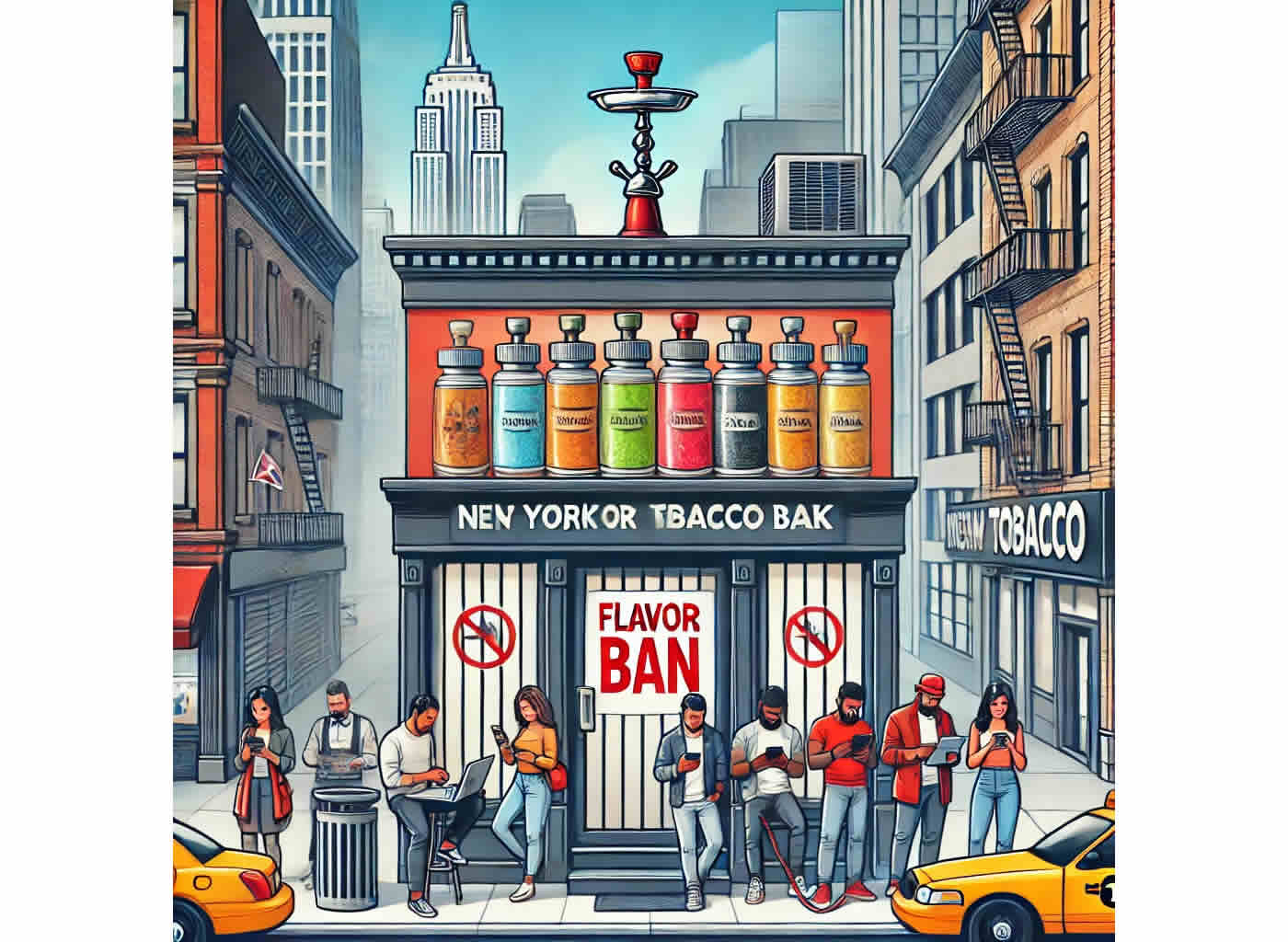New York’s recent tobacco flavor ban has sent ripples through the hookah and shisha community, significantly altering the landscape for both consumers and retailers. As the state cracks down on flavored tobacco products in an effort to reduce youth smoking rates, many hookah enthusiasts are finding themselves in a bind. This legislative shift has led to a noticeable increase in online sales of hookah and shisha products, as consumers seek alternative ways to access their favorite flavors.
Understanding the New York Tobacco Flavor Ban
The New York tobacco flavor ban, which came into effect to combat the rising youth vaping epidemic, prohibits the sale of flavored tobacco products, including menthol cigarettes and flavored e-liquids. This legislation extends to hookah tobacco, also known as shisha, which traditionally comes in a variety of flavors. While the ban aims to curb youth smoking, it has inadvertently impacted adult hookah smokers who enjoy these flavored products as part of cultural and social traditions.
Impact on Local Businesses
For local hookah lounges and tobacco shops, the ban has been a significant blow. These businesses have relied heavily on the sale of flavored shisha to attract and retain customers. With the ban in place, many have experienced a sharp decline in sales. Some have had to diversify their offerings, focusing on non-flavored products or ancillary goods to stay afloat. Others, unable to adapt, have faced the grim reality of closing their doors permanently.
The Shift to Online Purchases
In response to the ban, a growing number of hookah enthusiasts in New York have turned to online retailers to purchase their preferred flavored shisha. Online platforms offer a vast array of products that are no longer available locally, providing a lifeline for those who refuse to give up their favorite pastime.
Online retailers provide access to a wide variety of flavored shisha, far surpassing the limited options that might be available in states without such bans. Consumers can easily browse and purchase their preferred flavors from the comfort of their homes, without the constraints imposed by local legislation.
With the increase in demand, online retailers have ramped up their efforts to attract customers. Competitive pricing, coupled with frequent promotions and discounts, makes online shopping an appealing alternative. Consumers can often find better deals online than in local shops, adding another layer of incentive to make the switch.
For many, the discretion and convenience of online shopping are significant advantages. Customers can order their products without fear of judgment or legal repercussions, and have them delivered directly to their doorsteps. This ease of access has contributed to the surge in online sales since the implementation of the ban.
The Future of Hookah and Shisha in New York
The long-term effects of the flavor ban on New York’s hookah culture remain to be seen. While the intent behind the legislation is to protect public health, it has created a new set of challenges for adult consumers and businesses. The shift to online purchasing is likely to continue as long as the ban remains in place, with consumers adapting to the new normal by seeking out digital solutions to maintain their hookah experience. For those looking to buy hookah and shisha in New York online, websites like HookahVault.com offer a vast selection of products, ensuring that enthusiasts can still enjoy their favorite flavors despite local restrictions.
New York’s tobacco flavor ban has significantly impacted local sales of hookah and shisha products, driving many consumers to online platforms. The convenience, variety, and competitive pricing offered by online retailers have provided a viable alternative for those affected by the ban. As the market continues to evolve, it will be interesting to see how businesses and consumers adapt to this changing landscape. For now, the digital marketplace stands as a crucial resource for hookah enthusiasts looking to enjoy their favorite flavors amidst the new regulatory environment.














